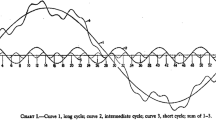
Overview
- Presents recommendations for monetary policy based on the Austrian business cycle theory
- Expands the Austrian approach to economics to make it more applicable to modern economics
- Clarifies inconsistencies within Austrian economics through the use of a new graphical apparatus
Access this book
Tax calculation will be finalised at checkout
Other ways to access
About this book
This book aims to present a new framework for Austrian economics that will make these ideas applicable to both mainstream economic models and modern economists. It will be relevant to students and researchers interested in the history of economic thought and the political economy.
Similar content being viewed by others
Keywords
Table of contents (9 chapters)
-
Front Matter
-
The Austrian Theory of Capital
-
Front Matter
-
-
Back Matter
Authors and Affiliations
About the author
Bibliographic Information
Book Title: Austrian Theory of Capital and Business Cycle
Book Subtitle: A Modern Approach
Authors: Pavel Potuzak
DOI: https://doi.org/10.1007/978-3-031-18728-5
Publisher: Palgrave Macmillan Cham
eBook Packages: Economics and Finance, Economics and Finance (R0)
Copyright Information: The Author(s), under exclusive license to Springer Nature Switzerland AG 2022
Hardcover ISBN: 978-3-031-18727-8Published: 13 December 2022
eBook ISBN: 978-3-031-18728-5Published: 12 December 2022
Edition Number: 1
Number of Pages: XIII, 151
Number of Illustrations: 60 b/w illustrations
Topics: History of Economic Thought/Methodology, Political Economy/Economic Systems, Economic Policy



